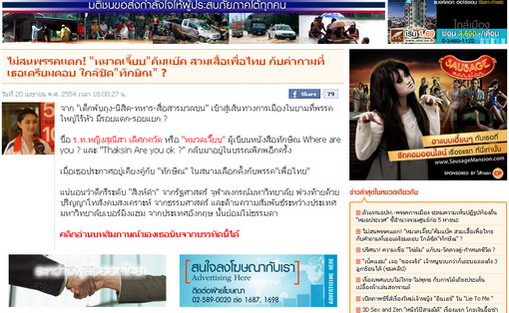A decade ago, I sat in my first Thai language class. After a trip to Thailand, I decided for the next one I’d try to learn the language so signed up for a Thai class at a local temple near my home in the US. Fast forward ten years, and I’m living in Thailand. Still studying Thai and becoming more comfortable in speaking it fluently every day. But, if you’re thinking of signing up for a Thai language class, is it really the language for you? Is Thai useful? Is it an easy language? Or would studying French or German be a better fit? Of course, only you can make that decision, but here are a few quick things to help.
Thai is a Tonal Language – Thai is one of the families of language that are tonal. What that means is each word in Thai holds a specific tone and in order to speak it correctly you must be able to remember the tone and use it every time you say the word. If you’re tone-deaf and cannot hear the difference between a low tone and a high tone, Thai may not be for you.
Thai Does Not Use The Roman Alphabet – Unlike languages like French or Spanish, Thai does not use the Roman alphabet. What that means is you have to learn a completely new alphabet of 44 consonants and 28 vowels before you can even begin to learn the language. Yes, you read that correctly, 28 vowels or vowel sounds.
Before you can learn new words in Thai, you have to memorize the alphabet along with how those consonants and vowels are written. For many who attempt Thai, they soon give up as remembering the alphabet alone is a lost cause.
Vowel Placement – Another lovely fun thing about Thai is where the vowels are placed when it’s written. A vowel can either go before a consonant (but is pronounced after the consonant), it can go after the consonant, above the consonant or below the consonant. Where it is placed in the word tells you how to pronounce it. Oh and yes, you have to memorize that too.
Not Many People Speak Thai – If you want a language you can use all over the world, it’s not Thai. With 64 million people in Thailand, only around 20 million speak Thai. The others speak one of various dialects or
another Tai language (and yes, that’s ‘Tai’ and not ‘Thai’). If you want a language you can use everywhere, why not try French, Spanish or Mandarin Chinese?
However, you can also look at it this way. Should you ever live in Thailand, you’ll be unique as few foreigners speak, read and write Thai well.
No Standard Transcription into Roman Alphabet – To complicate learning Thai even more, if you want to transcribe it into Roman letters, there’s no standard way of doing it. For instance, one of the main roads in Bangkok can be transcribed into the Roman alphabet and is transcribed at ‘Pahonyothin’, ‘Paholyothin’, Paholyotin’ and any number of other different spellings. A huge drawback when you try to navigate by Roman alphabet road signs. Who knows if you’re heading to the right area?
No Distinction Between Adverbs and Adjectives – The same word can be used as an adjective or an adverb, as there aren’t separate words for the two. Not as interesting a language as English or as beautiful as Spanish, particularly when you come to write poetry in it.
No Inflected Verbs – Unlike most European languages, where the language inflects (go, going, went), Thai has no inflection. The word to go ‘Bpai’ is always “Bpai’, no matter who is speaking, whether it’s future, past or present, if there are more than one or any number of other reasons.
Can be frustrating when you’re trying to figure out how to say “I was going there tomorrow but….”
Thai Has No Tenses – Technically, there are no tenses in Thai. The verb itself ie “Bpai” (go) is used then modifying words are added (yesterday, today, next week, ‘ja’ to indicate future) to help the listener understand what time the speaker is talking about. To many Thai learners, it often seems strange that they’re always speaking in the present tense.
Thai Has So Many Pronouns To Learn – Another frustrating thing about learning Thai is all the pronouns you have to learn. Depending on who you’re speaking to (younger, older, a higher social level, a monk etc) depends on which pronoun you must use. Thais know it instinctively. Anyone else often runs through pronouns in their head before they figure out which is the correct one and, by that time, the listener has moved on to speak to someone else.
Thais Speak of Themselves By Name – I don’t know about you, but I’m not in the habit of going around saying “Sarah will go to the market tomorrow with you”,when I’m talking about myself, but they do in Thailand. It’s deemed impolite to use the word “I” very much as it denotes being too self-involved, so Thais often speak of themselves in the third person instead of first and by given name instead of “She”.
Now, I love learning and speaking Thai, and have a great sense of accomplishment for how much I can speak already. I also think it’s a beautiful language, particularly in the way its written.
For others though, the frustrations can often outweigh the benefits so, if you don’t have a lot of patience to figure out an incredibly complex language or want to be able to speak a foreign language you can actually use in most countries in the world, then Thai maybe isn’t for you.
Photo – Just in case you don’t know, that’s what Thai language looks like. Remember, you have to learn to read that.

